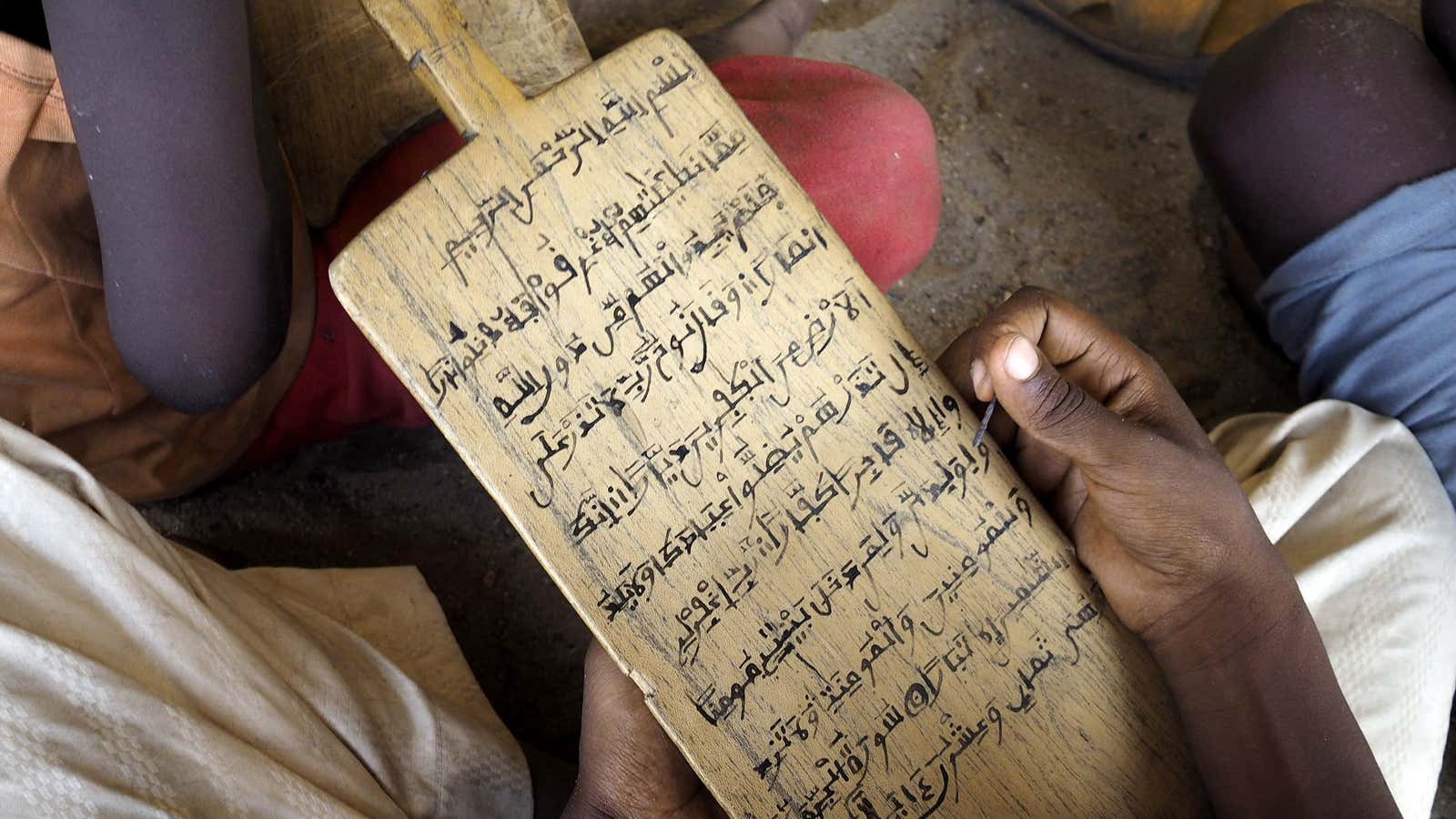Researchers have discovered what could be the oldest known manuscript of the Qur’an, Islam’s holy book—and it’s in England.
Radiocarbon analysis date the parchment itself—held at the University of Birmingham—to sometime between the year 568 and 645 AD, with 95% certainty. The tests, conducted by Oxford University, suggest the manuscript was actually written within two decades of Prophet Muhammad’s death in approximately 632.
“[T]hese two folios, in a beautiful and surprisingly legible Hijazi hand, almost certainly date from the time of the first three caliphs,” said Muhammad Isa Waley, lead curator for Persian and Turkish manuscripts at the British Library, in an interview with the BBC. The first three caliphs, who ruled in the years after the prophet’s death, were among the Sahabas, companions of the prophet who knew him when he was alive.
“The person who actually wrote it could well have known the Prophet Muhammad. He would have seen him probably, he would maybe have heard him preach,” David Thomas, professor of Christianity and Islam at the University of Birmingham, told the BBC. “He may have known him personally—and that really is quite a thought to conjure with.”
Muslims scholars have contended for centuries that the current text of the Qur’an has gone through little alteration from the original revelation. The discovery of these manuscripts—part of the Mingana Collection gathered in the 1920s by Alphonse Mingana, a priest from Mosul, Iraq—tend to support that view.
That such a discovery was made in the UK is also significant. At a time when questions are being raised as to whether one can be both British and Muslim, this revelation shows how linked the history of Islam is to the identity of modern Britain. The parchment will go on public display at Birmingham’s Barber Institute of Fine Arts in October.
